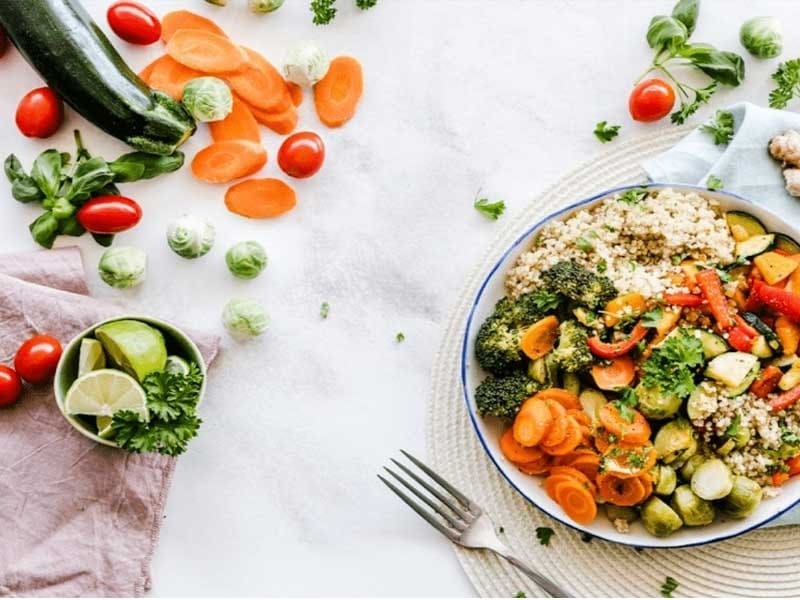The Covid-19 pandemic has forced consumers to change their behaviour, especially when it comes to food and beverage consumption. For example, restaurant dine-ins saw a significant drop in attendance while food delivery rose sharply, due to social distancing directives. Home cooking has became a new habit for many consumers and many shift their grocery purchase behaviours to online.
But consumption of food and beverage is more often symbolic and emotional, rather than just functional. More than just as a means to fill one's stomach or relieving thirst, food and beverages are also used to convey interaction between consumers and their culture. It's also a symbol of love, prestige, connection, and much more.
Using semiotics analysis, we found 8 cultural codes emerged, symbolizing how Indonesian consumers put meaning into food & beverages consumption during the social distancing phase of the Covid-19 pandemic.
- Hold Social Bonds Together - Indonesians are highly social and during this time of social distancing, food forms a connection between people, even though they cannot physically meet. The pandemic is spreading while Indonesians observed Ramadan and Eid, two religious events that traditionally involves multiple social gatherings over food. Covid-19 has pushed a different way to facilitate social bonding. Iftar dinners (breaking the fast) have been replaced by remote Iftar gatherings, and food hampers make way as celebration gifts for Eid. For the first, time the word "hampers" is trending in Indonesia during Eid as consumers share photos of their hampers on social media.
- Compassion and Solidarity - Food donation to frontline workers such as medical workers and motorcycle delivery (ojek) drivers and also movements to support local food businesses are examples of how food is used to express compassion and solidarity during Covid-19.
- Fear of Missing Out (FOMO) - Food has always been part of FOMO culture in Indonesia. Somehow, the FOMO behaviour remains alive even though consumers cannot go out to hunt for the latest food trend. Trends such as dalgona coffee, chocolate sprinkle art, and online cooking challenges show that the culture has manifested differently now as the human desires to fit in and keep up are not changing.
- Simulation of Normalness - Food helps consumers to get through the pandemic by helping them to replicate a level of normalness in their day to day life; allowing them to have some "normal" habits despite the social restrictions. Indonesians aim to replicate the dining out experience at home, and some food businesses see the opportunity to remain connected by providing restaurant foods at home and even by giving the simulation of dining out experience. A clever example is from Union Cafe that created the "Union from Home" Spotify playlist, so that consumers can relive their Union dining experience at home.
- Survival - During the pandemic, food helps consumers to get through the hard times. Home cooking is now a necessity to survive as eating out is less possible and bears a high risk. Awareness of food safety and hygiene heightened when consumers buy their food through online delivery or through local food and grocery vendors.
- Food as Defender - Food has also become a way to fight against the pandemic. Traditional herbal ingredients such as jamu and empon-empon see a new relevance as they symbolize the rise of national wisdom to fight off the bad, "imported" virus. The consumption of healthy foods is also increasing as consumers try to improve their immunity to prevent the spreading of the virus.
- Maintaining Mental Health - During the Covid-19 pandemic, food has emerged within the role as a caretaker of the mind. It helps to relieve anxiety through giving a sense of nostalgia and comfort and to fight boredom and stress.
- Respect for simple things - As consumers now have more time to slow down and contemplate during lockdown, food helps them to express gratitude and value mundane things in life that they previously ignored. For example, a viral video of sunny side egg preparation sends a message that a simple dish is actually sufficient to give enough protein and energy. It mocks the food hoarding behaviour shown by some consumers at the beginning of the pandemic.
What Can Foods & Beverages Brands Do to Help Our Consumers?
Given these new expressions through food and beverages, we identified four approaches that brands can use to communicate and innovate during the pandemic:
- Help consumers to SIMPLIFY their life - Brands can help consumers to be more mindful and appreciative.
- STRENGTHEN your consumers - Brands can facilitate the consumers to use this time to make something better prepared for the post-pandemic world.
- Provide a mechanism to COPE - Brands need to support the consumers mentally by providing escapism or safe space.
- REVOLUTIONIZE the consumers' way of life - Brands can innovate to introduce new things that will help the consumers right now.
This article is based on a webinar within the "Embracing the Un-Normal" series - presented on 20 May 2020. Please download the webinar presentation here..
For more information, here is the link to the YouTube to watch the session and also to the podcast to listen:
- YouTube: Illuminate Asia
- Spotify Podcast: Illuminate Asia


